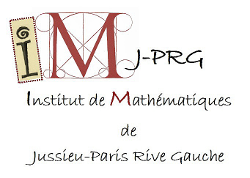| Résume | Hilbert’s sixth problem, stated in 1900 during the International Congress of Mathematicians, consists in the axiomatization of physics. In the case of fluid dynamics, this issue reduces to the derivation of hydrodynamic equations (a macroscopic description ) from kinetic equations (a mesoscopic description ), which would be themselves derived from Newton’s laws of motion applied to the particles making up the fluid (a microscopic description ).
In the special case of a gas close to a global thermodynamic equilibrium with constant density, temperature and velocity, the fluctuations of these two last quantities are driven by the Navier-Stokes equations. The problem of deriving this hydrodynamic model from this kinetic model is still partially open for strong solutions (the link between weak solutions being well understood thanks to the works of C. Bardos, F. Golse, D. Levermore and L. Saint-Raymond between 1989 and 2003).
Most of the strong theory of hydrodynamic limits consists in constructing solutions to the. Boltzmann equation close to the solution of some hydrodynamic equation and quantifying this “closeness”. However, they require that the initial statistical distribution for the velocity
decays like a Gaussian, although the ideal decay assumption, suggested by physical a priori
bounds, would be an algebraic decay.
The so called Enlargement Theory (of functional spaces), initiated by C. Mouhot and developped with M.P. Gualdani and S. Mischler between 2005 and 2017, allowed to construct solutions to several kinetic equations for initial data having an algebraic decay in the velocity variable. In this talk, I will explain how this theory can be combined with previous approaches (à la Bardos-Ukai or Gallagher-Tristani ) to construct solutions to the Boltzmann equation for any initial distribution with algebraic decay, and detail the modes of convergence to the incompressible Navier-Stokes limit depending on how well prepared it is. |

